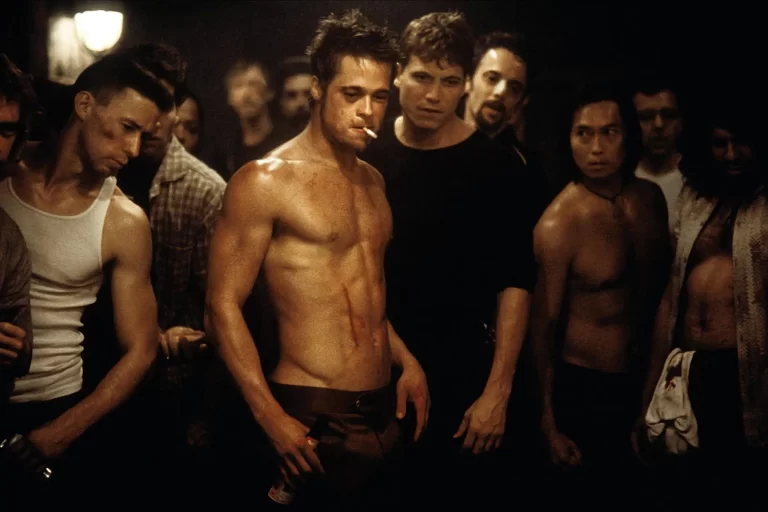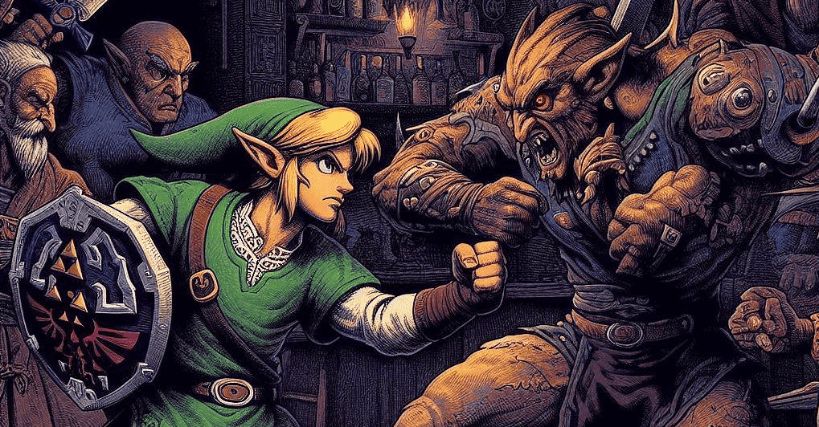
Fight Club’s Hidden Twist: The Intriguing Duality of the Narrator’s Struggle
“Fight Club,” the 1999 cinematic adaptation of Chuck Palahniuk’s novel, is renowned for its enigmatic plot and a shocking twist that keeps audiences riveted. The film primarily explores the life of its nameless main character (played by Edward Norton), who suffers from multiple personality disorder. As the narrative unfolds, it becomes clear that Tyler Durden (Brad Pitt) is an imaginary persona, but what many viewers might overlook is that Marla Singer (Helena Bonham Carter) is equally illusory. This article will delve into the Narrator’s inner turmoil, focusing on his choice to embrace the feminine, even though the audience remains unaware of Marla’s true nature.
Throughout the film, the Narrator’s life is consumed by existential angst and conformity. His alter ego, Tyler Durden, emerges as an embodiment of his suppressed masculinity, rebelling against societal norms and consumer culture. The underground fight club becomes the Narrator’s playground for cathartic release and newfound empowerment.

Amid the chaos and aggression embodied by Tyler, Marla Singer represents a breath of fresh air. Her character carries the sense of vulnerability and the need for connection in an alienating world. Marla’s presence provides a counterbalance to the masculine energy exuded by Tyler.
It is the Narrator’s internal struggle that drives the narrative of “Fight Club.” His journey is a reflection of his fractured psyche, torn between the two personas: the aggressive, masculinely charged Tyler and the emotionally receptive Marla. It is here that the film’s hidden twist emerges.
The turning point of the film is the climax, where the Narrator faces a harsh truth: Tyler is a creation of his own mind. He takes radical action to eliminate Tyler, realizing that he must come to terms with his internal conflicts. However, the audience remains blissfully ignorant of Marla’s illusory nature at this juncture.

The moment when the Narrator chooses to embrace the feminine side of his personality is a pivotal one, yet the audience remains oblivious to the profound layer of the narrative. His acceptance of the feminine, personified by Marla, symbolizes a desperate need for emotional connection and vulnerability. It is a yearning for a more balanced and harmonious existence, a plea for the release of pent-up emotions that were suppressed during the rise of Tyler’s malevolent influence.
As the narrative unfolds, it does not become evident that Marla, too, is a figment of the Narrator’s delusional mind. However, her role in the story is as crucial as Tyler’s. She symbolizes the emotional and sensitive aspects of the Narrator’s personality, a counterbalance to the aggressive and hyper-masculine persona that is Tyler.
The Narrator’s choice to embrace the feminine, unbeknownst to the audience, is a profound act of seeking internal balance and unity. It signifies his attempt to reconcile his fragmented self, to break free from the confines of hyper-masculinity represented by Tyler, and to connect with his emotions and vulnerabilities, as embodied by Marla.
“Fight Club” presents a compelling narrative of a man battling his inner demons, and the hidden twist that Marla, too, is a product of his imagination adds another layer of complexity to the story. The Narrator’s choice to embrace the feminine, driven by his struggle between Tyler’s masculinity and Marla’s femininity, is a potent symbol of his quest for inner equilibrium. The film’s allure lies in its ability to convey this internal struggle, keeping the audience in the dark until the very end, leaving us with a richer understanding of the complexities of the human psyche.











